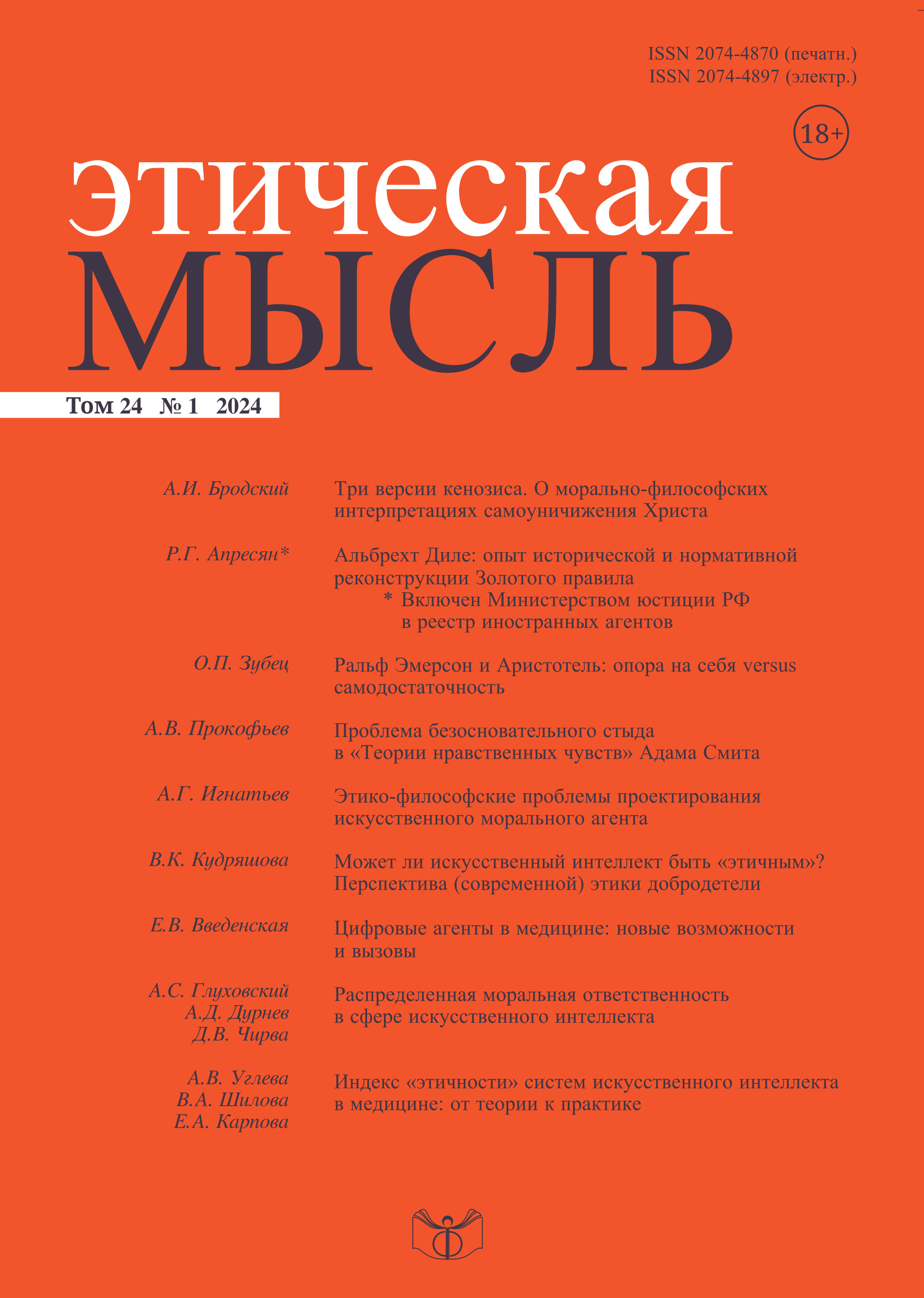Ethical and Philosophical Problems of Designing Artificial Moral Agent
DOI:
https://doi.org/10.21146/2074-4870-2024-24-1-87-100Keywords:
artificial intelligence, artificial moral agent, moral agency, ethics in artificial intelligence, consciousness, mind, intelligence, subjectness, computational moral quasi-agent, convergent hybrid moral agentAbstract
The article considers objective preconditions and reasons for the creation of an artificial moral agent (AMA), offers arguments both in favour of the development of such projects and demonstrating the limited capabilities of artificial intelligence systems in possessing the subjectness necessary for making moral decisions. First of all, disclosing the problem in terms of moral philosophy, approaches to the notion of “artificial moral agent” are presented, some concepts that hypothetically could provide the realisation of the so-called “machine morality” are discussed, and the initial conditions/criteria for AMA are outlined. The IMA problem is traced in relationship to theories in the fields of analytical ethics and philosophy of technology. On the basis of such an analysis the directions of research and scientific-experimental work on the creation of AMA are proposed. The thesis is justified about the failure of technical realisation of a universal, human-like AMA with the ability to solve complex, diverse moral dilemmas and tasks, to act in a wide and diverse field of moral situations. In this regard, it is proposed to use new terms – computational moral quasi-agent (MQA), and when decisions are made on the basis of human-machine interaction – convergent or hybrid moral agent (HMA). In the conditions of insufficiently developed theoretical basis and the presence of risks of MQA implementation, the author proposes a balanced, phased development of projects based on a subject-oriented, contextual approach (SOCA). Such an approach implies responsible implementation of MQA for specific types of systems (models) with a specific application task, in a specific physical or virtual environment (domain). In this case, the feasibility of designing MQA or HMA in a particular project should be explained, justified and proved.









